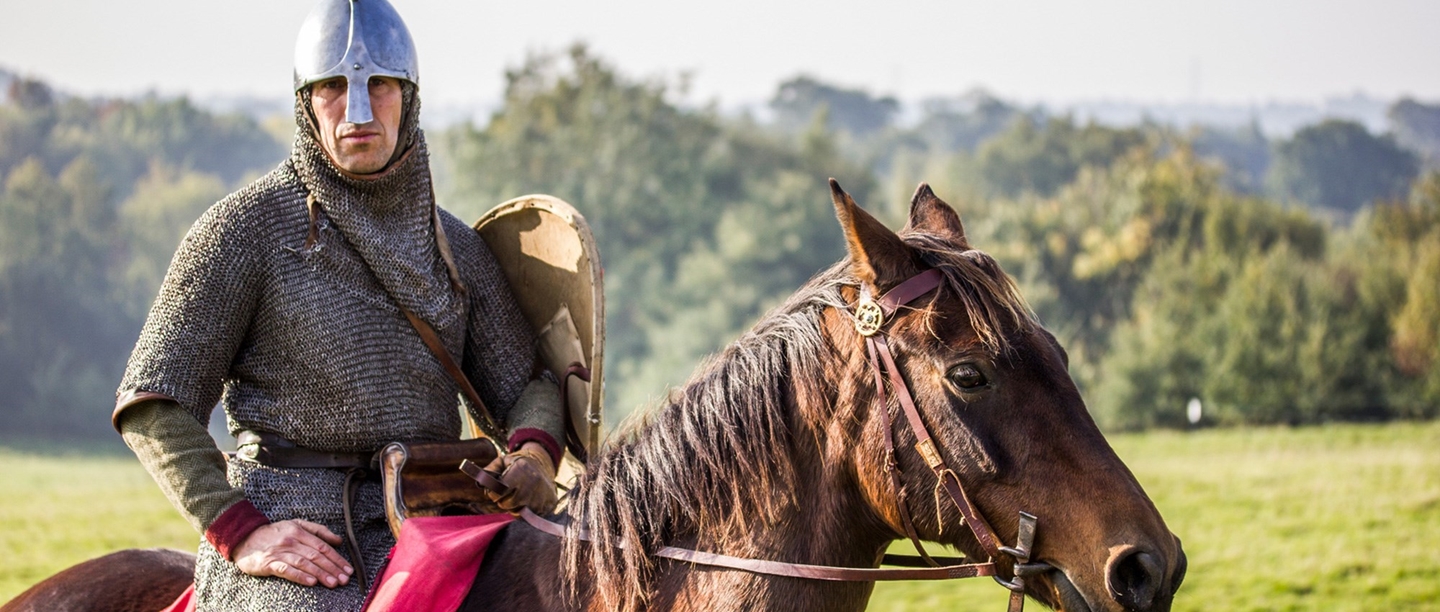King Harold
A powerful earl from a prominent family, Harold was no stranger to the political intrigues of 11th century Europe, becoming a vocal opponent of the Normans during the reign of Edward the Confessor. Harold was a capable military man and in his short reign, faced his adversaries head-on.
Duke William
William was the descendant of Viking raiders and fought with the ferocity of his ancestors to secure his position in Normandy in the years leading up to 1066. A cousin of Edward the Confessor’s, William’s claim to the English throne was based on kinship and Edward’s alleged nomination of him as his heir.
Edith of Wessex
Wife of Edward the Confessor and sister to King Harold, Edith was destined to experience loss and personal turmoil in 1066, experiencing first the death of her husband, then her brothers. A member of the influential Godwine family and well-educated, few women had as much power in 11th century England as Edith.
Matilda of Flanders
Matilda was a much sought-after-bride in the 11th century. She initially refused the hand of the illegitimate William of Normandy, but eventually relented and they went on to have a successful and happy marriage. Matilda was left in control of Normandy during William’s campaign in England.
Saxon Fyrdsman
England had no standing army in the 11th century but the King could call upon experienced men during times of war. These men fought in the Fyrd, which following established English practise, fought on foot and relied on a strong shield wall for defence.
Norman Knight
The Normans were an adventurous breed and travelled regularly across Europe in search of wealth and power. For a knight during 1066, England was a land of opportunity and a place to make a small fortune; perhaps if he demonstrates particular aptitude during the campaign, he will be rewarded with his own land by William.
Saxon Farmer
How did the events of 1066 affect the ‘common’ people of England? Would they even care who was on the throne, as long as they were left to their own business in peace? God-fearing Saxon farmers had a hard life; protecting their family and securing a plentiful harvest were their greatest concerns.
Monastic Chronicler
This Monastic chronicler is accompanying William during his invasion, as the Papacy had condemned Harold as a sinner. He sees the events of 1066 as being of divine purpose and champions William’s quest most ardently. The Chronicler has an agenda but he is a man of God – how will he justify what is sure to be a hard and bloody year for both sides?
More to Explore
-

Things you need to know about 1066
How long did the Battle of Hastings last? Was Harold really killed by a falling arrow? Discover what we know (or don't know) about the year that forged the future of England.
-

The History of Battle Abbey
Founded by William the Conqueror on the site of the Battle of Hastings, Battle Abbey was built as a symbol of penance for the blood that was shed during the conflict.
